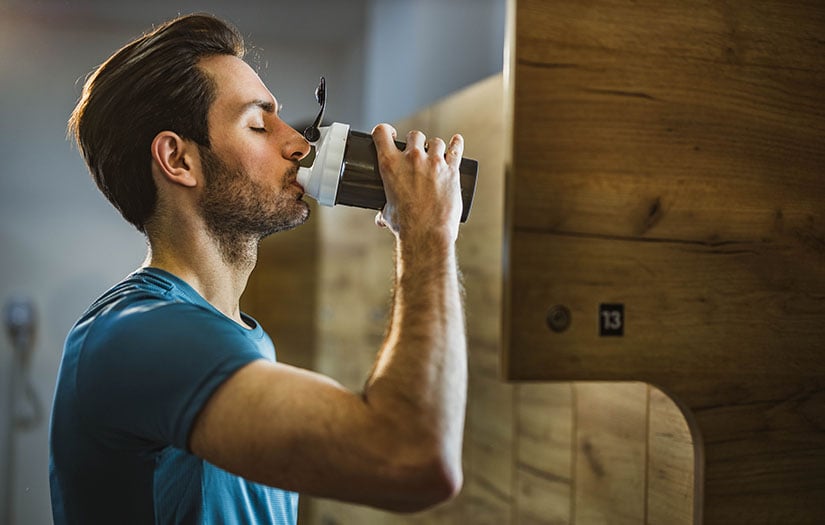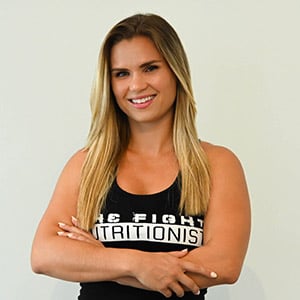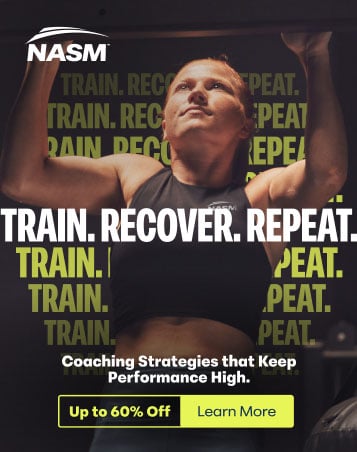Many of us are probably far too familiar with that sluggish feeling that sometimes dawns upon us when it's nearing time to hit the gym. In those cases, we are also probably searching for convenient ways to get a quick energy boost to increase our motivation to workout. Coffee, espresso, Celsius, Monster, a cold shower? What about pre-workouts?Yes! Pre-workouts! Something I'm sure many of you has always heard of if you're an avid gym go-er, but what is pre-workout and what does it do?
For a great understanding of Nutrition, be sure to sign up for the NASM Certified Nutrition Coach Certification.
What does Pre-Workout Do?
Pre-workouts are a blend of various individual supplements used to enhance energy, focus, and muscle protein synthesis.
If your goal is to lift more or build more muscle, a pre-workout supplement could most definitely help! Although, you need to ensure your pre-workout contains specific ingredients in the correct doses to truly obtain these benefits.
Do You Need Pre-Workout?
So, do you need a pre-workout? In short, the answer is no. You can obtain many of these ingredients naturally from foods. The caveat? To get the benefits of these ingredients, you need a high concentration to feel the true effects — something that may be difficult if choosing the "natural source" route. However, choosing single ingredients over a pre-workout is still an option if you need an extra boost!
pH buffers such as beta-alanine in doses of 3-6g will help increase the duration of high-intensity movements or heavy lifts. If your pre-workout only contains half the recommended dose, it may not be enough to allow you to push yourself just a little bit more. Similarly, creatine and amino acids can aid in muscle building. However, dosing is still a major factor in reaping this benefit.
What are the key ingredients to look for when choosing a pre-workout?
Focus on the blend on the nutrition label. This will indicate several different ingredients make up the pre-workout. It's important to ensure you're choosing a high-quality product.
Look for the following ingredients (at the very least) when choosing a pre-workout:
- Caffeine
- Beta-alanine/Sodium Bicarbonate
- Electrolytes
- Amino Complex
- Creatine
Caffeine
Caffeine is the most widely studied ergogenic aid and has been proven to enhance performance time and time again. It can naturally be found in coffee, teas, and cocoa. Caffeine increases performance through various mechanisms. The most widely known is its stimulation of the central nervous system. Caffeine acts to increase the availability of neurotransmitters responsible for exciting the nervous system.
That is why we often have increased energy, focus, and sometimes increased pain tolerance after caffeine ingestion. Caffeine also optimizes exercise metabolism and increases calcium availability in our muscles, which is what contributes to its ability to enhance exercise performance! Research has shown that doses of 3-6mg/kg body mass are optimal to enhance exercise performance, and doses greater than 9mg/kg lead to undesirable side effects (irritability, GI discomfort, insomnia, etc.) and have no increased benefit regarding performance.
#2 Beta-alanine/Sodium Bicarbonate
Have you ever taken pre-workout and noticed a tingling sensation all over the body? If you answered yes, then your pre-workout contains beta-alanine! Beta-alanine is an amino acid produced naturally in our bodies and is the rate-limiting amino acid in carnosine synthesis.
Carnosine is a combination of the amino acids beta-alanine and L-histidine. It is extremely abundant in our muscles and is mainly responsible for buffering acidic environments. When we exercise at high intensities, our muscles accumulate H+ ions. Carnosine helps decrease or buffer this acidic build-up to allow our bodies to continue high-intensity exercise for greater durations.
However, since beta-alanine is the rate-limiting amino acid - it has been shown that increasing beta-alanine stores also increases carnosine stores in skeletal muscle. Research has shown that doses of 4-6g/day can increase muscle carnosine concentrations by 64% after 4 weeks of use, and 80% after 10 weeks.
A common side effect of increased beta-alanine ingestion is paranesthesia or tingling. Don't worry! This is completely normal and safe. So, if you're looking to truly get an extra "boost" of energy during your workout, beta-alanine is a must ingredient!
#3 Electrolytes
Electrolytes are minerals in the body that produce an electric current when dissolved in water and are responsible for maintaining fluid balance, balancing the body's pH level, moving nutrients in cells, pushing waste out of cells, and maintaining the normal function of all our nerves and muscles - especially our heart and brain.
When we lose too many electrolytes through sweat, we can often experience headaches, dizziness, fatigue, and muscle cramping. Not ideal if we're in the middle of a workout! Choosing a pre-workout with a small concentration of electrolytes can help increase fluid availability in your body to keep you from fatiguing too early — especially if you sweat excessively.
#4 Amino Complex
Amino acids are the basic building blocks of our skeletal muscle. While amino acids don't necessarily contribute to energy production, they are responsible for our body's recovery process. Consumption of amino acids before/during exercise has been reported to delay muscle soreness. Pre-workout supplements will often contain branched-chain amino acids (BCAA's): leucine, valine, and isoleucine; or they will contain a combination of all the essential amino acids.
#5 Creatine
Creatine is the king of supplements if a hierarchy existed in the supplement world. Creatine exists naturally in our bodies and has been shown to increase strength, power, muscle mass, improve recovery, increase total body hydration, and increase focus during times of sleep deprivation or extreme fatigue. To increase creatine stores it is recommended to consume about 5g/day. However, you'll often see it in doses of 3-5g in most pre-workout supplements.
Other ingredients to Look for in Pre-Workout
L-citrulline
L-citrulline is a precursor for L-arginine, which is an important substrate for Nitric Oxide Synthase (NOS). Nitric oxide plays important role in improving blood flow and increasing mitochondrial respiration. There is growing interest in L-citrulline for its ability to increase vascular function during exercise.
Betaine
Betaine is a compound derived from sugar beets and has been postulated to act as an ergogenic aid by improving cardiovascular function during exercise.
Sugar/Glucose/Carbohydrates
Glucose is the preferred energy source for all the cells in our body. When we exercise, we metabolize glucose to provide energy or ATP to working muscles. Doses of 15-30g of carbohydrates 15-30 minutes before exercise has been shown to delay early fatigue towards the end of an exhaustive workout.
B-vitamins
B-vitamins play important roles in various metabolic processes involved in energy production. A deficiency in 1 or more of the various B-vitamins can decrease the efficiency of various metabolic pathways. AKA you'll have decreased energy production and a greater chance of fatigue.
Pre-Workout Recap
Takeaway message? Pre-workouts can't hurt you, so if you feel you need something to bump the intensity of your workouts, head on over to your local supplement shop! Just make sure your pre-workout has the main ingredients in the correct doses discussed in this article.
Of all the supplements that you'll find occupying shelf space at your local GNC or grocery store, pre-workouts are one of the few supplements that have strong scientific evidence to support their use.
References:
https://jissn.biomedcentral.com/articles/10.1186/s12970-020-00383-4
https://jissn.biomedcentral.com/articles/10.1186/s12970-015-0090-y
https://www.frontiersin.org/articles/10.3389/fnut.2019.00135/full

















